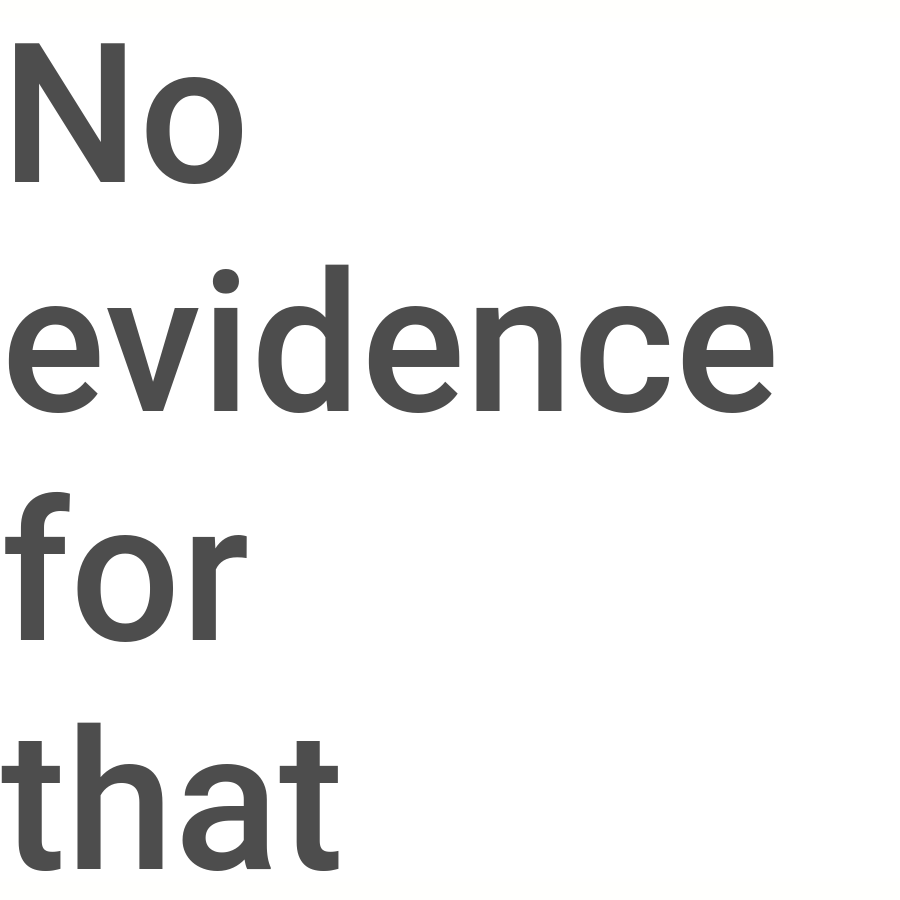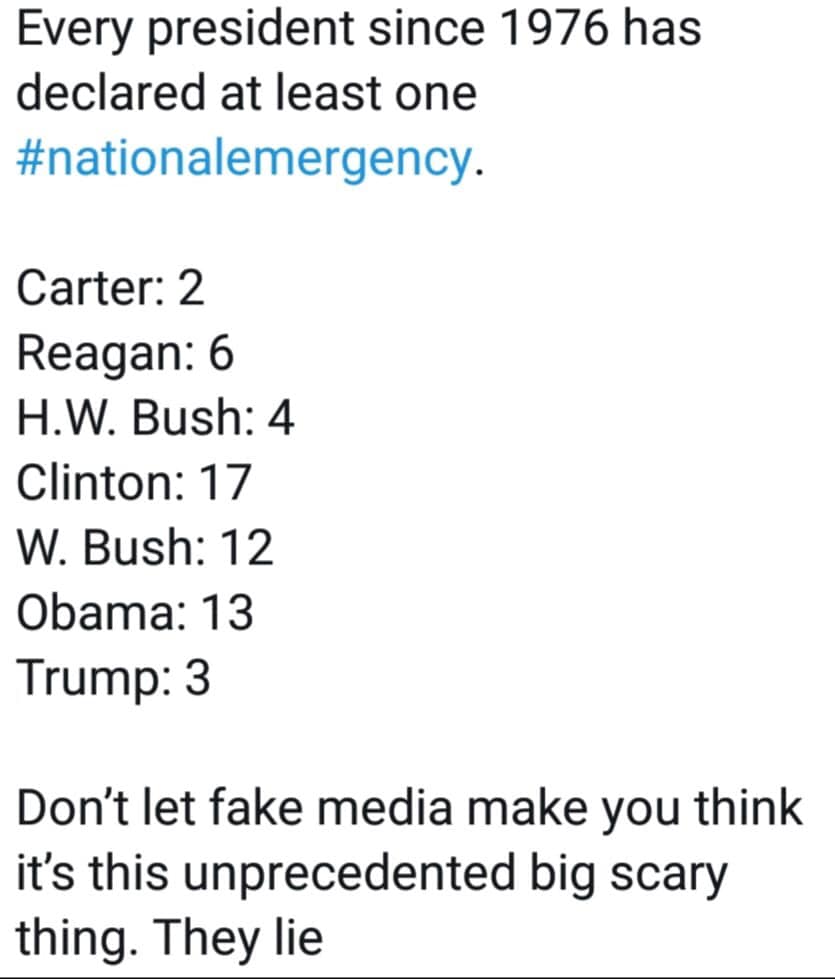On Friday morning, Donald Trump walked up to a lectern in the White House Rose Garden to make an announcement of monumental importance that clearly couldn’t wait a moment longer. “Before we begin,” he said, “I’d like to just say that we have a large team of very talented people in China. We’ve had a negotiation going on for about two days. It’s going extremely well.” Then Trump brought up North Korea, Syria, and the state of the U.S. economy. Finally, he moved on to the business of the moment: a desperate effort to put the best possible face on the humiliating defeat that he suffered on Capitol Hill over funding for his border wall. “We are going to be signing today, and registering, a national emergency,” he said. “And it’s a great thing to do because we have an invasion of drugs, an invasion of gangs, an invasion of people, and it’s unacceptable.”
He didn’t leave it at that; he doesn’t know the concept. Instead, he sought to justify his action by trotting out some of his old lies about undocumented immigrants, and some he’s added to his repertoire more recently. “We have far more people trying to get into the country today than probably we’ve ever had before.” (The number of interdictions at the southern border is running at roughly half the level it was a decade ago.) The crime and drug problem in El Paso is “a hundred per cent” better since the construction of a border barrier. (El Paso has long had one of the lowest crime rates of any city in the country.) Federal prisons are full of illegal immigrants. (Even setting aside people being held for immigration offenses, undocumented immigrants make up a tiny proportion of the federal-prison population.)
In this carefully concocted narrative, the wall isn’t a mere stretch of concrete or steel fencing stretching along the border; it’s a symbol of national sovereignty and regeneration. But, if it’s so important, why didn’t Trump get it built during his first two years in office, when the Republicans controlled both houses of Congress? Trump’s failure to get his own party to support what was arguably his signature campaign pledge demonstrates that he is fundamentally a weak and isolated President. But, of course, he can’t admit that publicly, either. Instead, he said, “It would have been great to have done it earlier. But I was a little new to the job, a little new to the profession. And we had a little disappointment for the first year and a half. People that should have stepped up did not step up. But we’re stepping up now.” Take that, Paul Ryan!
This official unveiling of the former House Speaker as Trump’s 2020 whipping boy didn’t come as a surprise. Neither did the declaration of a national emergency. Trump has been threatening to make this move for months, and Mitch McConnell, the Majority Leader in the Senate, had announced his intentions from the Senate floor on Thursday afternoon. Earlier on Thursday, according to a tick-tock by the Washington Post, Trump was still threatening to veto the bipartisan spending deal that allotted $1.375 billion to border barriers. In order to get him to sign the bill and keep the government open, McConnell agreed to support the declaration of an emergency and encouraged other Republicans to support it.
Here was yet another example of how the G.O.P. leadership’s Faustian pact with Trump has driven them to enable his more authoritarian tendencies. During his Rose Garden address, Trump freely conceded that his emergency decree will immediately be challenged in the lower courts, and quite likely get snagged there. But citing what happened to his travel ban, he said he was hopeful of prevailing in the Supreme Court—an outcome that can’t be ruled out given its conservative tilt.
If this happens, Trump will have succeeded in undermining the principle that the President proposes and the Congress disposes, which is contained in Article I of the Constitution. And, as Democrats and Republicans were quick to point out, he will have set a precedent. In a statement issued on Friday afternoon, Thom Tillis, a Republican senator from North Carolina, invoked the prospect of “President Elizabeth Warren declaring a national emergency to shut down banks and take over the nation’s financial institutions.”


